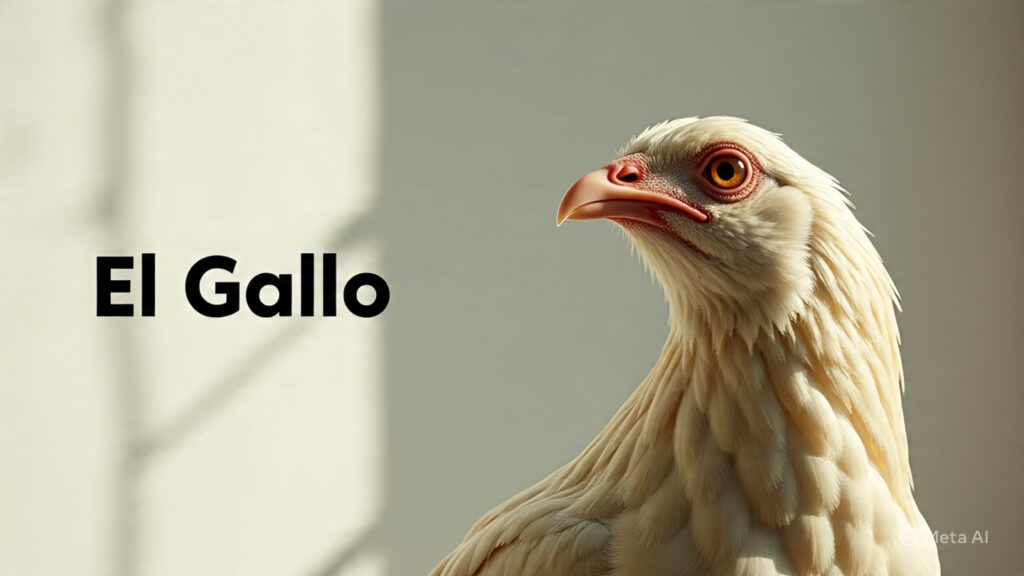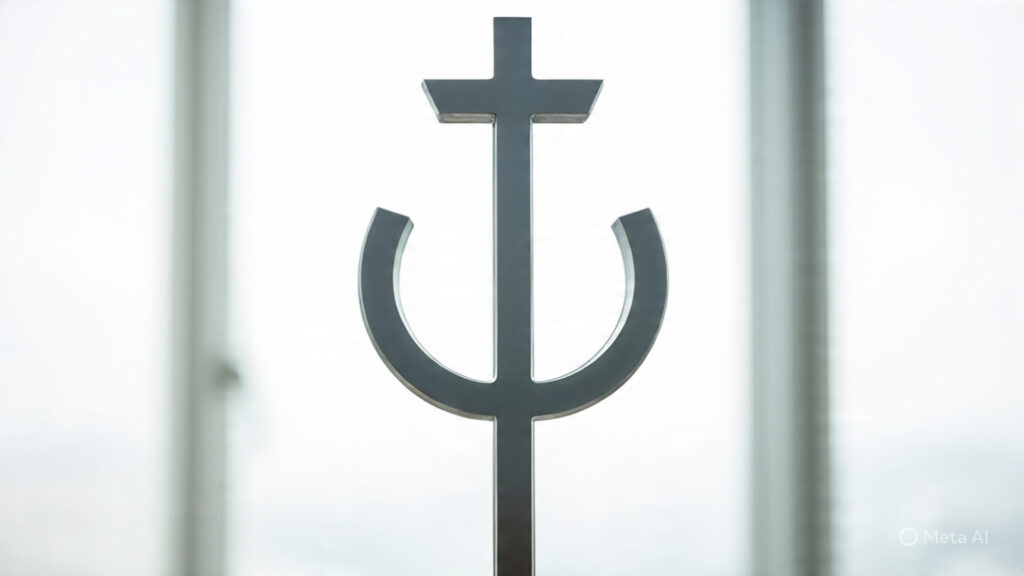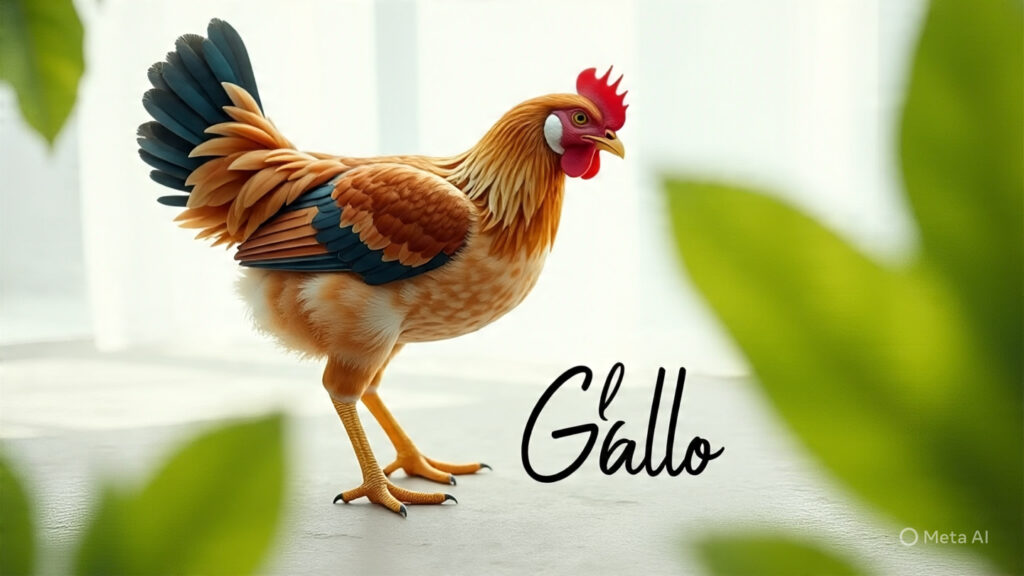El Gallo, the Spanish word for “the rooster,” is more than just a bird that crows at dawn. In Hispanic and Latin American cultures, it has become a timeless symbol of awakening, courage, pride, and leadership. Its confident stance and commanding crow inspire proverbs, songs, folktales, and religious references, giving it deep cultural and spiritual meaning.
Calling someone “un gallo” is seen as a compliment, highlighting strength, charisma, and resilience. From literature and poetry to Catholic symbolism, indigenous traditions, music, and even lucha libre wrestling, the rooster holds an honored place. Even today, El Gallo’s crow reminds people of hope, discipline, and renewal making it a universal icon of light, life, and resilience.
The Literal Meaning of El Gallo

Awakening and Daily Life
At its core, El Gallo means “the rooster.” Its crowing at dawn has long been humanity’s most natural alarm clock. In rural villages and farming communities, people relied on the rooster’s voice to begin the day’s labor.
This association with discipline and productivity turned El Gallo into a living symbol of order in daily life, linking it forever with renewal and fresh beginnings.
Everyday Symbolism

In Spanish, describing someone as “como un gallo” (like a rooster) is a way of praising their confidence, pride, and strength.
Just as the rooster struts across the yard with boldness, so too does a person admired for leadership and energy. This everyday use shows how El Gallo moved beyond being a farm bird into an admired cultural metaphor.
Key Symbolic Points
- Renewal at sunrise and the start of each day
- Discipline and responsibility in daily routines
- Confidence, strength, and energy reflected in human behavior
El Gallo in Mexican Culture
Proverbs and Sayings
Mexican proverbs often highlight the wisdom of the rooster. Sayings such as “El gallo que canta al amanecer anuncia esperanza” (The rooster that sings at dawn announces hope) connect El Gallo to optimism and resilience.
Another proverb, “Al gallo madrugador, Dios le ayuda” (God helps the early-rising rooster), emphasizes discipline and the value of hard work. These expressions show how deeply El Gallo is woven into everyday wisdom.
Symbol of Strength and Courage

In rural Mexico, the rooster is admired for its bravery in defending its territory. Its upright posture, sharp crow, and willingness to fight symbolize courage and masculinity. This symbolism extends into sports like boxing and wrestling, where many athletes proudly adopt “El Gallo” as a nickname to represent their strength and fearless spirit.
Folklore Tales of Courage
Mexican folklore often portrays El Gallo as a household protector and defender against evil. Stories suggest that its crow drives away dark spirits and brings light to the community. These tales preserve the idea of the rooster not just as an animal, but as a spiritual guardian.
El Gallo in Literature and Poetry
Symbol of Awakening and Justice
Writers and poets frequently use the rooster as a metaphor for awakening, hope, and social change. Its crow is compared to the collective voice of people demanding justice or breaking free from silence. In this way, El Gallo becomes a literary figure of renewal and transformation.
Representation of Resilience
In novels and poetry, El Gallo often embodies honor and perseverance. Its crow after a long night is symbolic of human determination to rise again after hardship. This resilience makes it a powerful image in both classical and modern Hispanic literature.
Literary Symbolism of El Gallo
- Voice of resilience and protest
- Awakening from silence or oppression
- Honor and dignity in the face of struggle
Religious Symbolism of El Gallo
Christianity and the Story of Peter
One of the most famous religious references to El Gallo comes from the Bible. After Peter denied Jesus three times, the rooster crowed, marking a moment of weakness but also repentance and renewal. This biblical story gave El Gallo enduring Christian symbolism as a call to vigilance, humility, and spiritual awakening.
Vigilance and Spiritual Renewal
Because of this story, churches in Europe and Latin America often feature roosters on weather vanes or church towers. They serve as reminders of watchfulness, faith, and the constant need for spiritual renewal.
Religious Associations of El Gallo
- Symbol of repentance and humility
- Reminder of vigilance and alertness
- Representation of faith and renewal
El Gallo in Music and Folklore

Traditional Songs and Corridos
In Mexican folk music, El Gallo is celebrated in corridos, rancheras, and mariachi songs. The rooster represents pride, masculinity, and leadership within the community. Its crow is often used as a metaphor for a powerful voice that inspires and commands respect.
El Gallo as a Musical Nickname
Many famous singers have embraced “El Gallo” as a stage name, comparing their powerful voices to the commanding crow of the rooster. Just as the rooster demands attention in the morning, these singers capture audiences with their charisma and strength.
Folklore Tales of Courage
In folk stories, El Gallo often takes on legendary roles as a brave figure who defends the community. Its crow symbolizes the triumph of light over darkness, giving people hope and confidence to face challenges.
The Rooster as a Daily Symbol of Awakening
Dawn and New Beginnings
Each morning, the rooster’s crow marks a fresh start, reminding people that no matter how dark the night, dawn always arrives. This daily ritual turned El Gallo into a universal emblem of hope and opportunity.
A Reminder of Resilience
The rooster teaches resilience by rising each day with renewed energy. It shows that yesterday’s troubles can be left behind and that each morning is a chance for courage and growth.
Daily Lessons from El Gallo
- Embrace each day with confidence
- View dawn as a symbol of renewal
- Carry resilience into life’s challenges
El Gallo in Spanish Proverbs

Wisdom Through Sayings
Spanish is rich with rooster-inspired sayings. Proverbs like “Al gallo viejo, poco grano” (An old rooster gets little grain) highlight wisdom and life’s stages, while others emphasize vigilance and strength. These sayings ensure that El Gallo’s cultural lessons endure.
Passing Down Values
Through language, El Gallo becomes a vehicle for passing down values such as discipline, bravery, and perseverance from one generation to the next.
Key Values in Proverbs
- Discipline and vigilance
- Pride in hard work
- Watchfulness and readiness
The Role of El Gallo in Festivities
Celebrations and Festivals
In Latin American festivals, rooster masks, costumes, and dances are common. El Gallo represents joy, community spirit, and cultural pride, often featured in parades and traditional performances.
Festive Symbolism of El Gallo
- Unity and celebration
- Energy and vitality
- Pride in cultural identity
El Gallo in Cuisine and Daily Life
Culinary Traditions
In Mexican and Spanish cuisine, chicken and rooster-based dishes hold symbolic value, often served during family celebrations. Meals prepared with “gallo” carry connotations of nourishment, family unity, and tradition.
Food Symbolism
Just as El Gallo represents strength and vitality in culture, its presence in food symbolizes nourishment and the passing down of culinary heritage.
El Gallo in Modern Nicknames and Lucha Libre

Athletes and Leaders
From soccer players to boxers, many modern athletes adopt “El Gallo” as a nickname to symbolize their strength, leadership, and determination in competition.
Lucha Libre Tradition
In Mexican wrestling, luchadores sometimes take on rooster-inspired names, connecting with the animal’s courage and pride. El Gallo’s symbolism thrives in this colorful cultural arena.
El Gallo as a Global Cultural Symbol

Beyond Latin America
While El Gallo is celebrated in Hispanic culture, the rooster holds meaning worldwide. In Chinese culture, it is a zodiac sign symbolizing luck, prosperity, and honesty. In France and other parts of Europe, the rooster represents vigilance, faith, and national pride.
Global Meanings of El Gallo
- Prosperity and luck (Chinese culture)
- Vigilance and honesty (European traditions)
- Renewal and resilience (universal symbolism)
FAQ’s
What does El Gallo mean in Spanish?
It literally means “the rooster,” but symbolically it represents courage, pride, and resilience.
Why is El Gallo important in Mexican culture?
Because it symbolizes bravery, masculinity, and leadership in proverbs, music, and folklore.
Does El Gallo have religious significance?
Yes, in Christianity, it is tied to Peter’s denial of Christ and represents vigilance and spiritual awakening.
Why do people use El Gallo as a nickname?
Because it conveys strength, pride, and charisma, making it popular among athletes, singers, and leaders.
Is El Gallo significant outside of Spanish culture?
Yes, cultures worldwide celebrate the rooster as a symbol of prosperity, protection, honesty, and renewal.
Conclusion
El Gallo is far more than a farm bird it is a universal symbol of strength, awakening, and courage. From its literal role as a herald of dawn to its deeper significance in literature, folklore, religion, and music, the rooster continues to inspire and guide communities. In Mexican culture, it reflects masculinity and resilience; in Christianity, it calls for repentance and vigilance; and globally, it stands for prosperity and protection.
In modern times, El Gallo thrives in festivals, music, cuisine, lucha libre, and sports. Its symbolism remains timeless, reminding us that each dawn is not just the start of another day but an opportunity to rise with pride and confidence. Truly, the crow of El Gallo is not just a sound it is a call to live with strength, resilience, and joy.

Hi, I’m Michael Grant. I have 4 years of experience writing for BibleTruthsNow.com, sharing insights on prayer, Bible meaning, and faith to encourage believers in their spiritual journey.


